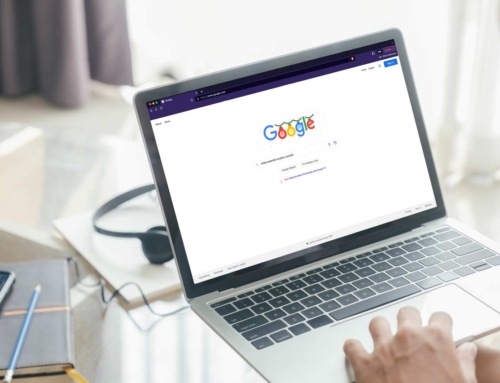In recent years, blogging has become an integral part of search engine optimization and internet marketing for one simple reason: it works. Search engines are built to find content on the web and whether that content is written in a blog, or in a more traditional, less personal form, the internet is full of content.
1. What is SEO?
SEO is a set of techniques that involve searching for, retrieving, and displaying information for a particular search query. SEO is an important part of any website. it can directly affect if the website can be found by a visitor looking for a certain product or service. SEO is often referred to as “Search Engine Optimization” and can be used to improve search engine rankings as well as bring a higher number of visitors to your website.
2. Importance of SEO
Search Engine Optimization (SEO) is a great place to start when you’re trying to get your website ranked on search engines like Google. It’s the most affordable and effective way to get your site listed on the first page of Google. There are multiple ways to rank on the first page like buying ads but even if you are buying ads, your SEO is still important. SEO is all about organic results and most people just skip the ad listings and click the organic results displayed for the keywords they are looking for.
3. Local SEO
Just like Global SEO, Local SEO also has different practices and those may be named differently by different SEO experts. We name them “on-page Local SEO”, “on-site Local SEO”, and “off-site Local SEO”. A simple explanation of these is;
- on-page Local SEO: Local SEO practices like the local keywords that you use in your content and the overall content structure to rank locally.
- on-site Local SEO: This is where we make sure the contact information on our website can clearly be crawled by search bots and matches with our local listings.
- off-site Local SEO: These are just like backlinks but they are a little different and they are called local listings or citations. Another successful way of ranking better locally is using global web 2.0 link-building techniques with target keywords for Local SEO which we will talk about later in our blog post.
4. What is Professional Niche Blogging?
Professional niche blogging is a term that is commonly used in the internet marketing world today. Basically, it’s a way to target your site content to a specific audience by using inbound marketing practices. With this technique, you can focus your efforts in the way that is most likely to convert your target audience into a buyer: with a detailed and informative blog post.
It is not a secret that blogging is one of the best ways to get discovered as an expert by people who want to find out about new products or services in your niche area. Nowadays, it has become a great way to promote your business, services, or products online by using inbound marketing techniques. What’s more, people tend to trust the advice of an expert, so they tend to get attracted to blogs with a lot of information about them.
INBOUND VS OUTBOUND MARKETING
INBOUND VS OUTBOUND MARKETING
5. What is the right structure for a Local SEO blog?
There is no specific structure for a blog post, at least from an SEO perspective but there are some practices you should apply in your blog post to rank better and become a local SEO blog post.

- Writing a longer post than our competitor. Most people think longer content is better than shorter content and that is right in most cases. So before writing, you should make research the length of the blog posts that you are competing with. So you should run a competitor analysis.
- Using better and easy-to-rank keywords than our competitors. A better keyword simply means, a high search volume and low competition keywords. Key phrases are always better compared to keywords but it still requires deep research to find the right keywords.
- Use the location name that you want to rank for your local SEO. Let’s say your targeted audiences are also in St Louis and want to rank locally in the St Louis area for a specific keyword. That means you should keep using St Louis as a keyword in your content. Once your blog post is linked with your website’s contact information and citations, your website will rank higher for the specific keyword in the St Louis area.
- Use rich media in your post. Rich media simply means video, sound, picture, or graphic content. Google is not in favor of big blocks of text content because they know most people don’t even read those. Using rich media and small paragraphs will make your content read easily. They can also help people to stay on your website longer and reduce the bounce rate.
- Use internal and external links. Try using some anchor texts to link to the other pages on your website and one or two more to link to an external website.
- There are many other ways to optimize to rank better. Like title tags, alt tags, power words and numbers in SEO titles, etc…
6. How to SEO optimize my blog post for local searches?
Other than global SEO practices like meta descriptions, title tags, alt tags, keyword placements, etc. you should also use your location as one of your keywords. If your website is already locally optimized, it will adopt the content easily. You can also start creating relevant backlinks to increase the website traffic to the specific post to give it a jump start.
7. How can backlinks help?
Relevant backlinks are an important part of search engine optimization because they help search engines understand your website and the content within it. Search engines then decide whether or not to rank your website higher in search engine results.
As you can backlink your index page, you can also backlink the specific pages on your websites. We recommend not using more than 30% of your backlinks to your home (index) page. Try getting backlinks to the specific pages but do not just get random backlinks. That doesn’t matter how many backlinks you have. It is all about how strong the backlink provider’s website is and how relevant the contents are.
Create a link-building plan for yourself and build them slowly but surely. You can outrank your older competitors with fewer backlinks.
8. Does blogging often increase my ranking?
This will be a complicated answer. Blogging may increase your traffic but does not help your ranking if you are not publishing quality content or using anchor texts to link your pages/posts to each other. If you link them to each other, the page with higher page authority can share authority with the one with lower page authority. You should always keep track of the blog posts you published and Google Search Console is the best and free tool to do that.
On the other hand, if you are blogging quality content and generating many organic backlinks which is the natural result for quality content, that will generate page authority for your blog post and improve the linked pages to/from that specific page. Generating many relevant backlinks will increase your website’s domain authority and this will help increase your overall ranking.
I know, it is confusing. So simply; blogging may help your website’s overall traffic directly and ranking indirectly if you are creating quality content. If you want to learn how to create quality content, check out our “ultimate content marketing guide“.





